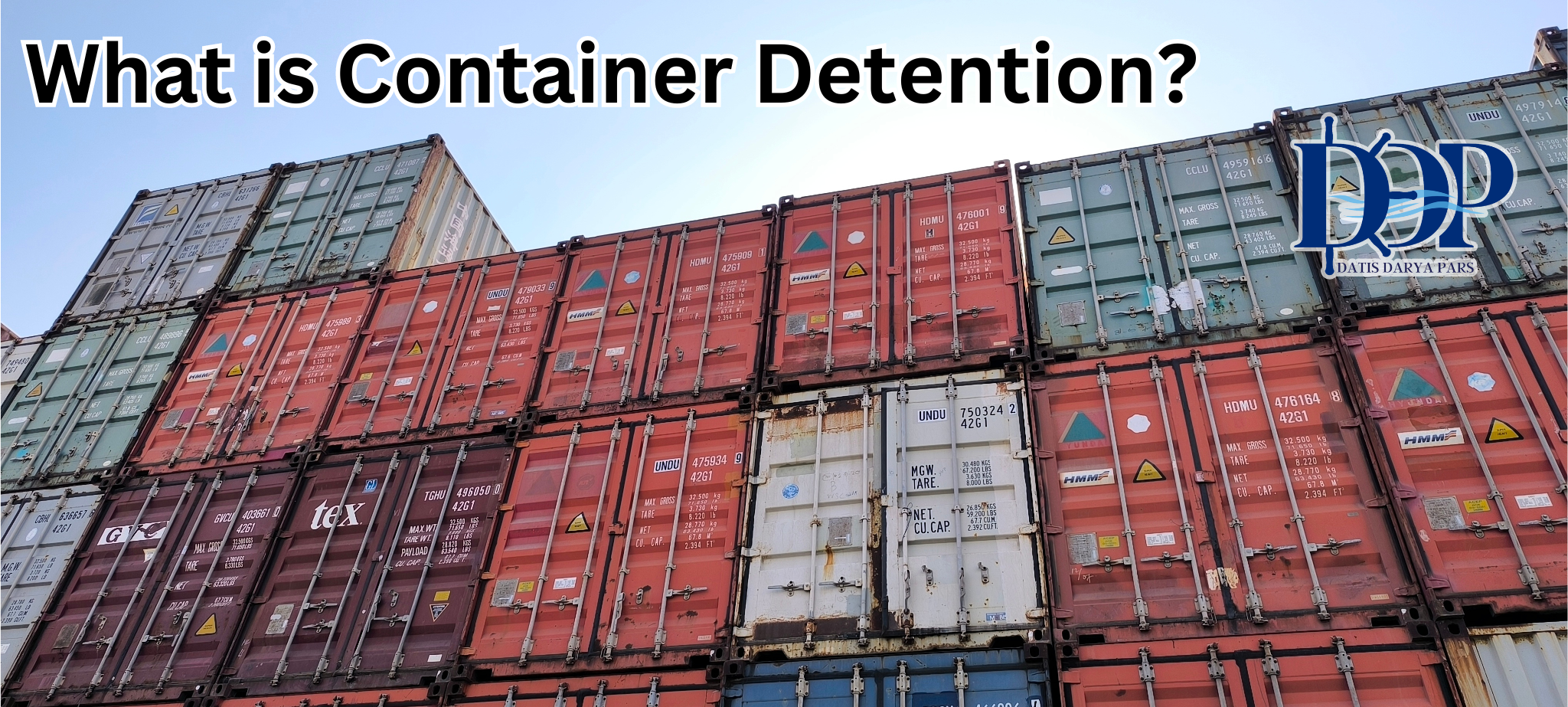What is Container Detention?
Container detention, one of the key concepts in maritime and land transportation, refers to a fee that is charged when a container is not returned to the shipping company on time after the goods have been unloaded. This fee serves as a penalty for the delay in returning the container and has a significant impact on logistics costs and business planning. To better understand this concept, we need to familiarize ourselves with the related key terms and how this fee is applied.
Key Concepts in Container Detention
Container detention typically occurs when a container is discharged from a port and transported to a warehouse or final destination, but the goods’ owner fails to return it within the designated time frame. This period is known as “free time,” which gives the owner an opportunity to unload the container. For example, in international transport contracts, the free time for a 20-foot container may be defined as 7 to 10 days. After this period, if the container is not returned, the penalty will be calculated on a daily basis.
Factors Affecting the Amount of Detention Charges
The amount of container detention charges can vary depending on several factors. One of the most important factors is the length of the delay. The longer the delay, the higher the costs will be. Additionally, the type of container plays a crucial role in calculating the fee. For example, refrigerated containers, due to their specific maintenance requirements, usually have higher detention costs.
Moreover, local and international tariffs also affect the amount of detention charges. In some cases, international transport companies set different rates in dollars or the local currency for containers. For example, in transportation from China to Iran, dollar tariffs are more common, while in domestic transport, costs are calculated in the local currency.
Methods for Reducing Container Detention Fees
To avoid paying high detention fees, companies can use various methods. One of the best approaches is to optimize planning and scheduling for loading and unloading shipments. Using logistics management software can help companies manage transportation processes more accurately and efficiently. Additionally, considering alternative transportation plans in emergency situations can reduce delays and prevent penalties.
Moreover, companies can establish clear agreements with transport companies and set appropriate free time for each shipment to avoid extra costs. Some companies also receive discounts on detention charges by entering into long-term contracts with transport companies.
The Role of Free Time in Managing Costs
Free time is a key factor in determining detention costs. This period gives the goods’ owner the chance to unload the container without incurring penalties. Usually, free time varies based on the type of cargo, the type of container, and the transportation conditions. For instance, in transporting sensitive and refrigerated goods, free time may be shorter, whereas for non-sensitive goods, a longer free time may be granted.
In the end, free time plays an important role as a tool for managing costs and avoiding unnecessary delays in the transportation cycle. Companies that can optimally manage their free time can significantly reduce their costs.
Summary
Container detention, as an essential component of international and domestic transport, significantly affects logistics costs. This fee is imposed due to the delay in returning the container after unloading and may vary depending on different circumstances. To avoid paying hefty fees, proper planning, precise coordination with transport companies, and the use of logistics management technology are of great importance.

 then 'Add to home screen'
then 'Add to home screen' then 'Add to home screen'
then 'Add to home screen'



بدون دیدگاه